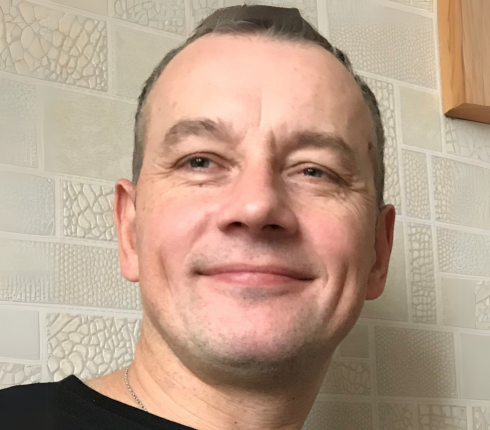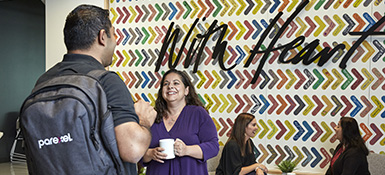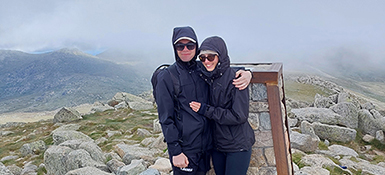Meet Kirill, Executive Director, FSP Data Operations

Inspired by lectures on statistical thinking in clinical trials, Kirill joined Parexel's Russian office, combining his passion for applied science with a growing enthusiasm for operations work. Over two decades, he has built and led global teams across EU-East and APAC regions, driving innovation in data operations and ensuring accurate analysis of clinical trial data to advance healthcare worldwide.
What was it about Parexel that drew you in, and when did you make the decision to join?
I joined Parexel in 2000, after completing my post-doctoral studies in math and bioengineering at Duke University. While at Duke, I was fortunate to attend Dr. Richard Kay’s, then the global Head of Parexel Biostatistics and Programming department, lectures called “Statistical Thinking in Clinical Trials.” Richard had sparked my interest by very clearly showing a connection of science to practical applications in real life, and that interest soon led me to join the Russian office of Parexel. I did not really know of/considered any competitors!
How would you describe what it’s like to work at Parexel?
I think Parexel is a great model of a global company as it does not limit anyone in what they can achieve here. Having been here for over 20 years, I have seen so many professionals start from the same initial level and progress along very different career paths, that best fit their aspirations. I have enjoyed watching them grow and I am honored to continue to work alongside them.
What would you like people to know about your job?
FSP Data Operations has existed for over 10 years. Under an FSP model, a customer outsources work of a given function strategically, across multiple protocols, assets, therapeutic areas. For example, over the years, one of our strategic partners has successfully outsourced over 70% of their statistical programming business to Parexel. The high-quality services we provide out of EU-East (Russia, Poland, Serbia) and APAC (Taiwan, China, India) regions enable the customer to accurately analyze clinical trial data to ultimately determine the efficacy of their pipeline products.
What excites you most about the work you do?
Many things excite me about my work! I enjoy the sense of relevance in what we collectively do and how it contributes to patient health. I also appreciate the ability and privilege to communicate with many great professionals across the world, both at Parexel and at our customer organizations. It's rewarding to help people in their professional development path and see them progress. Finally, I'm excited by the opportunity to learn from others and continue my own professional growth.

What is it about your position that challenges you most?
One of the big challenges for me personally was to completely step away from project work, as I used to be a Biostatistician and Programming Lead working on various interesting protocols and enjoyed that part very much! My group, first in Russia, then in all of EU-East, and then in APAC was growing and I found myself 100% in a management and oversight role. I thoroughly enjoy this role, which offers the best of both worlds. While my initial passion for applied science led me to Parexel, I've discovered a new enthusiasm for operations work. Communicating with people and building a global team around the world has been an incredibly rewarding experience, broadening my skills and perspectives in ways I hadn't anticipated. It's exciting to see how my scientific background enhances my current role, creating a unique blend of expertise that benefits both our team and our clients.
How has the team culture at Parexel contributed to your professional experience?
I enjoy informal interaction, seeing faces, even if mostly through Teams lately. Once the contact is established and your colleague, team, or customer counterpart feels that you are all part of the joint effort it is easy to address specific matters at hand, no matter easy or difficult, minor or major, global or small scale.
How has Parexel supported your career development?
I am fairly self-reliant, but I have always felt support and encouragement from my managers and mentors throughout my career at Parexel. For example, at the very beginning, I was entrusted to recruit and oversee a team of programmers and data managers even though I did not have any management experience. I have had to learn from practice and have enjoyed the management aspect of my career ever since. Another example, also inspiring at the time, was when I was given various challenging biostatistics lead responsibilities and supported by colleagues in carrying them out – large integrated efficacy and safety submissions to the FDA including very interesting meta-analyses and challenging data integration work, a DMC statistician role for a large oncology study, etc. I try to challenge and encourage my staff in a similar way and hope they find the challenges I give interesting.
Personal Insights
What is something most people don't know about you?
I do not think many people know that I started snowkiting when I turned 50. There are few limits, but you have to be sensible at taking risks.
What do you enjoy when you're not at work?
As a father of two, my greatest joy outside of work comes from quality time with my children. Whether we're engaged in outdoor adventures, playing, or reading a good book, these moments are what I enjoy most. 
What is your untrainable superpower?
Trust in the good in the people.
If you wrote a ‘user manual’ for how people should interact with you, what would be the most important point in the manual?
I prefer when people are sincere, open, direct, and honest with me.
Explore Parexel
-
 Learn More
Learn MoreOur work culture
Learn about our culture, perks, learning opportunities, and our corporate responsibility approach. Parexel's compassionate and results-driven work culture prioritizes patient care and employee growth.
-
 Learn More
Learn MoreMeet Adrian, a Site Care Partner navigating the complex landscape of clinical trials and prioritizing patient care
Adrian works as an outsourced Site Care Partner (SCP) for a client within the clinical research and pharmaceutical industry. Learn more about Adrian's experience and insights on how he contributes to the success of clinical trials and prioritizing patient care.
-
 Learn More
Learn MoreCareer Development at Parexel
Discover how Parexel supports your professional growth through manager support, skill development, career planning, and AI training. Learn about our commitment to your success in clinical research.
Featured Jobs
- MLR Facilitator (Content Approval) - FSP - Brazil - Remote
- Senior Statistical Programmer (FSP) - POLAND Poland - Remote; Poland, Warsaw, Remote
- MLR Facilitator / Project Specialist - East Coast US - FSP - United States of America - Remote
- MLR Facilitator (Content Approval) - FSP - Mexico - Remote
- MLR Facilitator (Content Approval) - FSP - Argentina - Remote
Sign up for our Talent Community
Sign up and we’ll reach out with job alerts when positions that match your career interests become available. We’ll also share periodic updates about the latest company news and events.

